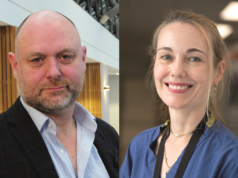 Vascular Therapies recently announced results from its phase 3 clinical trial in which Sirogen showed encouraging arteriovenous fistula (AVF) outcomes in elderly end-stage renal disease (ESRD) patients. Sirogen is the company’s proprietary sirolimus formulation for intraoperative local drug delivery to reduce surgical stenosis in blood vessels.
Vascular Therapies recently announced results from its phase 3 clinical trial in which Sirogen showed encouraging arteriovenous fistula (AVF) outcomes in elderly end-stage renal disease (ESRD) patients. Sirogen is the company’s proprietary sirolimus formulation for intraoperative local drug delivery to reduce surgical stenosis in blood vessels.
Following positive clinical results from a phase 2 clinical study (n=30; two international sites, two surgeons), the company embarked on the ACCESS study, a phase 3, randomised, controlled, multicentre clinical trial. The ACCESS study enrolled 243 patients with ESRD and chronic kidney disease (CKD) from 20 US sites, including 20 nephrologists and 26 surgeons.
The study was designed to evaluate the safety and effectiveness of Sirogen to improve outcomes in patients undergoing the surgical creation of an AVF to provide vascular access for haemodialysis. The primary endpoint of fistula suitability for dialysis at six months was not achieved; however, in exploratory subgroup analyses that reflected the demographics of the enrolled population, the ACCESS study revealed important potential benefits for ESRD patients age 65 and older who required an AVF for dialysis, namely:
- Improved overall AVF maturation
- Improved radiocephalic AVF maturation
- Improved suitability for dialysis at 12 months
- Improved secondary patency
Maria DeVita, senior nephrologist at Lenox Hill Hospital in New York, USA, and medical monitor for the study, commented, “The clinical results from the ACCESS study are very encouraging, especially for ESRD patients age 65 and older, who represent 50% of the haemodialysis population in the USA. Additionally, there were no unexpected adverse events, confirming the overall favourable safety profile of the product.”
Sriram Iyer, chief scientific officer of Vascular Therapies, added, “The findings from the ACCESS study address an important unmet need for elderly dialysis patients. We would like to thank the nephrologists, surgeons, clinical coordinators, and patients for their participation in the study.”












